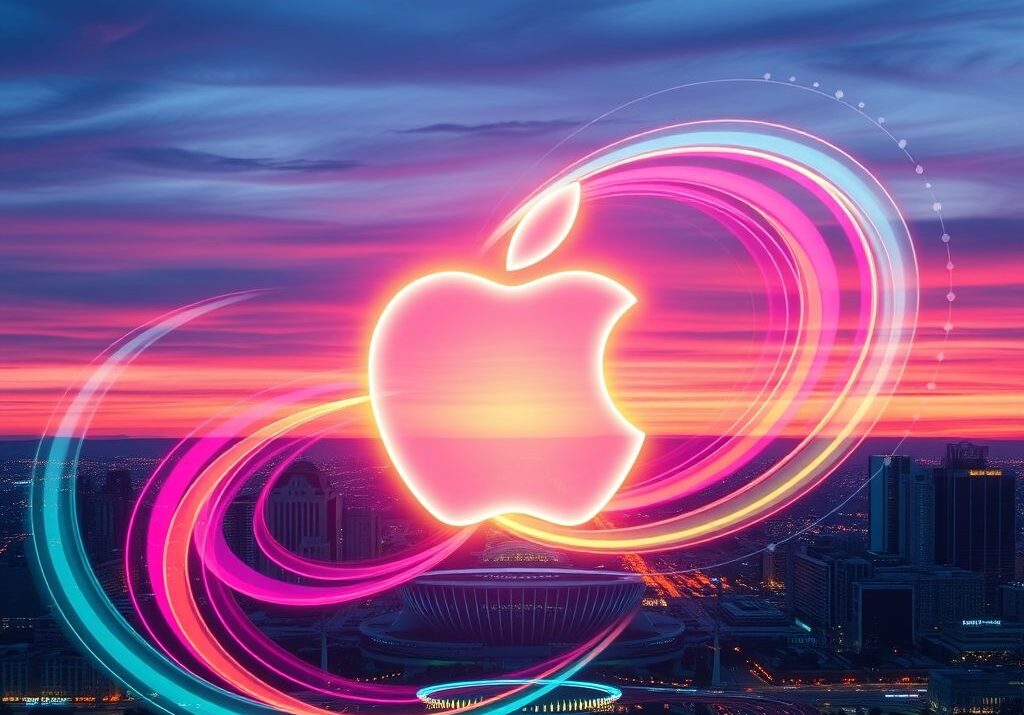Okay, tech enthusiasts, buckle up! This week has been a whirlwind, especially with Apple’s WWDC 2025 dominating headlines. Instead of rehashing press releases, let’s dive into what really caught my eye, drawing from the buzz around TechCrunch’s recap and other sources. Are we finally seeing the future we were promised?
WWDC 2025: More Than Just a Facelift?
Apple keynotes often feel like well-orchestrated hype machines, but this year felt… different. It wasn’t just about faster processors and shinier screens. It felt like Apple was finally addressing some long-standing user pain points, particularly in AI integration and productivity.
What’s Everyone Chatting About? (Besides the Free Coffee)
Beyond the usual fanfare, three things from WWDC 2025 have sparked serious conversations:
- Smarter Siri, Finally: Let’s face it, Siri hasn’t exactly been winning any AI awards. But this year, Apple showed off a dramatically improved Siri, deeply integrated with apps and capable of complex, multi-step tasks. Think “Siri, draft an email summarizing my meeting notes and schedule a follow-up with everyone who attended.” This could finally make Siri a legitimate competitor to Google Assistant and Alexa. According to a recent study by Statista, the global voice assistant market is projected to reach $19.6 billion by 2025, so Apple’s play here is crucial.
- iPadOS: Work Machine, Confirmed? For years, the iPad has been stuck in a weird limbo – too powerful to be just a consumption device, but not quite capable enough to replace a laptop. WWDC 2025 may have changed that. With enhanced multitasking, pro-level app support (think desktop-class versions of Final Cut Pro and Logic Pro), and improvements to the Files app, the iPad is edging closer to being a true productivity powerhouse. As pointed out by a report from IDC, the detachable tablet market (which includes iPads) saw growth in recent years, and these changes might accelerate that trend.
- Privacy-First AI: In an era of constant data breaches and privacy concerns, Apple is doubling down on on-device AI processing. This means more tasks are handled directly on your iPhone or iPad, without sending data to the cloud. It’s a bold move, prioritizing user privacy over potentially faster processing speeds offered by cloud-based AI. A Pew Research Center study highlights that a majority of Americans are concerned about how their data is being used by tech companies, making Apple’s focus on privacy a potential differentiator.
Beyond Apple: The Week’s Other Hot Topics
WWDC wasn’t the only tech news generating waves:
- The Browser Company’s AI Browser: Forget everything you know about browsing. The Browser Company (the brains behind Arc) is pushing the boundaries with its AI-powered browser. Imagine a browser that anticipates your needs, summarizes content, and even helps you write emails. Early adopters are raving about its potential to streamline workflows and boost productivity.
- OpenAI and Mattel: Toys Get Smarter: Get ready for a new generation of toys! OpenAI’s partnership with Mattel is set to bring AI-powered experiences to classic brands like Barbie and Hot Wheels. This could mean toys that respond to your child’s voice, adapt to their play style, and even tell interactive stories.
5 Key Takeaways from This Week’s Tech News
- AI is becoming less of a novelty and more of a utility. We’re moving beyond simple voice commands to AI that genuinely assists with complex tasks.
- Privacy is no longer an afterthought. Companies are starting to recognize that users care deeply about data security, and are building privacy into their products from the ground up.
- The lines between devices are blurring. The iPad is increasingly becoming a viable alternative to a laptop, and other devices are likely to follow suit.
- AI is poised to revolutionize the toy industry. Expect to see more and more toys incorporating AI to create more engaging and personalized experiences.
- Competition is heating up in the browser space. The Browser Company’s AI browser is challenging the dominance of Chrome and Safari, and could usher in a new era of browsing innovation.
In conclusion: This week in tech has shown that the tech world is not slowing down.
FAQ
1. What was the biggest announcement at WWDC 2025?
While opinions vary, the revamped Siri and its deep integration with apps definitely stole the show. It addresses a long-standing weakness in Apple’s ecosystem.
2. Will the iPad finally replace my laptop?
Potentially! With the new iPadOS features, it’s closer than ever. But it depends on your specific workflow. If you rely heavily on desktop-only apps, a laptop might still be necessary.
3. How is Apple prioritizing privacy with AI?
By focusing on on-device AI processing, meaning much of the AI functionality happens directly on your device without sending data to the cloud.
4. What is the Browser Company’s AI browser?
It’s a browser that uses AI to anticipate your needs, summarize content, and help you with tasks like writing emails. It aims to make browsing more efficient and personalized.
5. How will OpenAI’s partnership with Mattel change toys?
Expect toys that are more interactive, personalized, and responsive. They could adapt to your child’s play style and even tell interactive stories.
6. When will these new features be available?
Apple typically releases its new software in the fall. Keep an eye out for official release dates closer to September.
7. Will the new Siri be available on older iPhones?
That’s unclear. It will likely require a newer iPhone with a powerful enough processor to handle the on-device AI processing.
8. What are the potential drawbacks of on-device AI?
It could be slower than cloud-based AI, and might limit the complexity of tasks that can be performed.
9. Are there any concerns about AI-powered toys?
Yes, privacy and data security are major concerns. Parents will want to carefully review the privacy policies of these toys.
10. What other companies are working on AI browsers?
Google and Microsoft are also investing heavily in AI-powered browsing features. Expect to see more announcements in the coming months.








